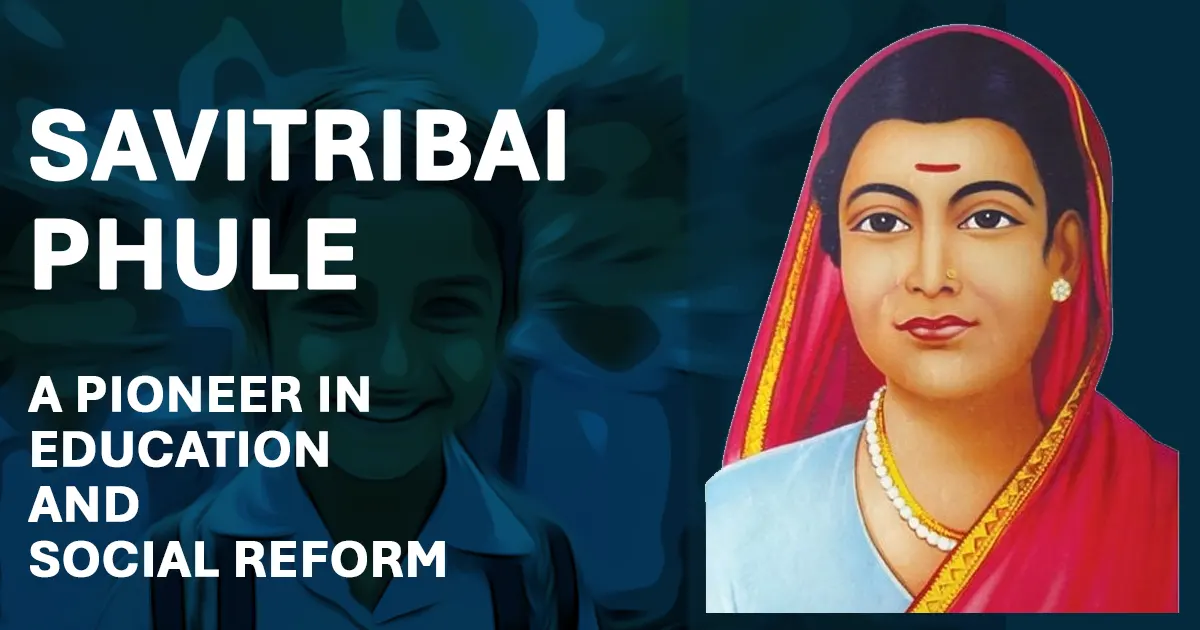GS 1 – Modern India

Born on January 3, 1831, in Naigaon, Maharashtra, Savitribai Phule came from the Mali community. As India’s first female teacher and a leading social reformer, she married Jyotirao Phule at the age of 10. Under his mentorship, she received an education at home and later pursued formal teaching training in Pune.
Savitribai Phule’s Contribution to Society
- Promoting Women’s Education: In 1848, alongside her husband, she founded India’s first girls’ school in Pune, advocating for education for women, Shudras, and Dalits, despite facing significant opposition from society.
- Championing Social Welfare: She established the ‘Balyata Pratibandak Gruha,’ a shelter for widows and survivors of sexual violence. Savitribai also supported progressive movements such as widow remarriage, inter-caste marriages, and the abolition of harmful practices like child marriage, sati, and dowry.
- Fighting Caste Discrimination: Through the Satyashodhak Samaj, she worked towards dismantling caste and religious barriers, striving for social equality.
- Defying Gender Norms: In an act of immense courage, Savitribai led her husband’s funeral procession and performed the last rites, challenging the societal norms of the time for women.
- Humanitarian Efforts During Calamities: During the 1896 famine and the 1897 Bubonic plague, she was actively involved in relief efforts, tragically contracting the plague while helping the victims.
- Literary Works: Savitribai was also a poet and author. Her works include the poetry collection Kavya Phule, Bavan Kashi Subodh Ratnakar (1892), and Matushri Savitribai Phulenchi Bhashane va Gaani.
Challenges Faced by Savitribai
- Social Resistance: Savitribai faced harsh opposition from influential figures, including Bal Gangadhar Tilak, and was ostracized by society, even being disowned by her father-in-law.
- Personal and Social Hardships: Despite enduring physical abuse and social exclusion, Savitribai remained steadfast in her mission, viewing these struggles as validation of her righteous cause and the need for reform.




